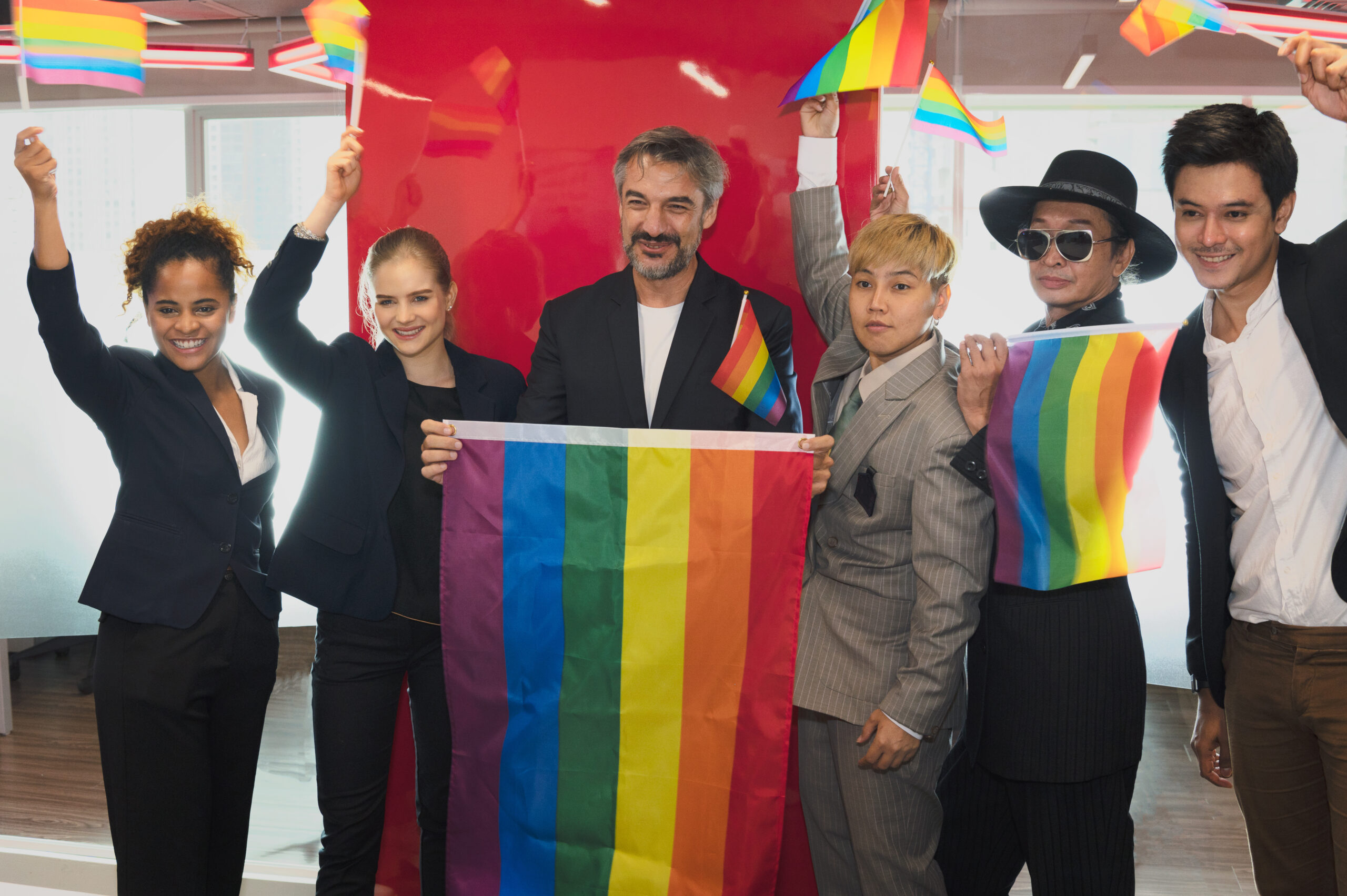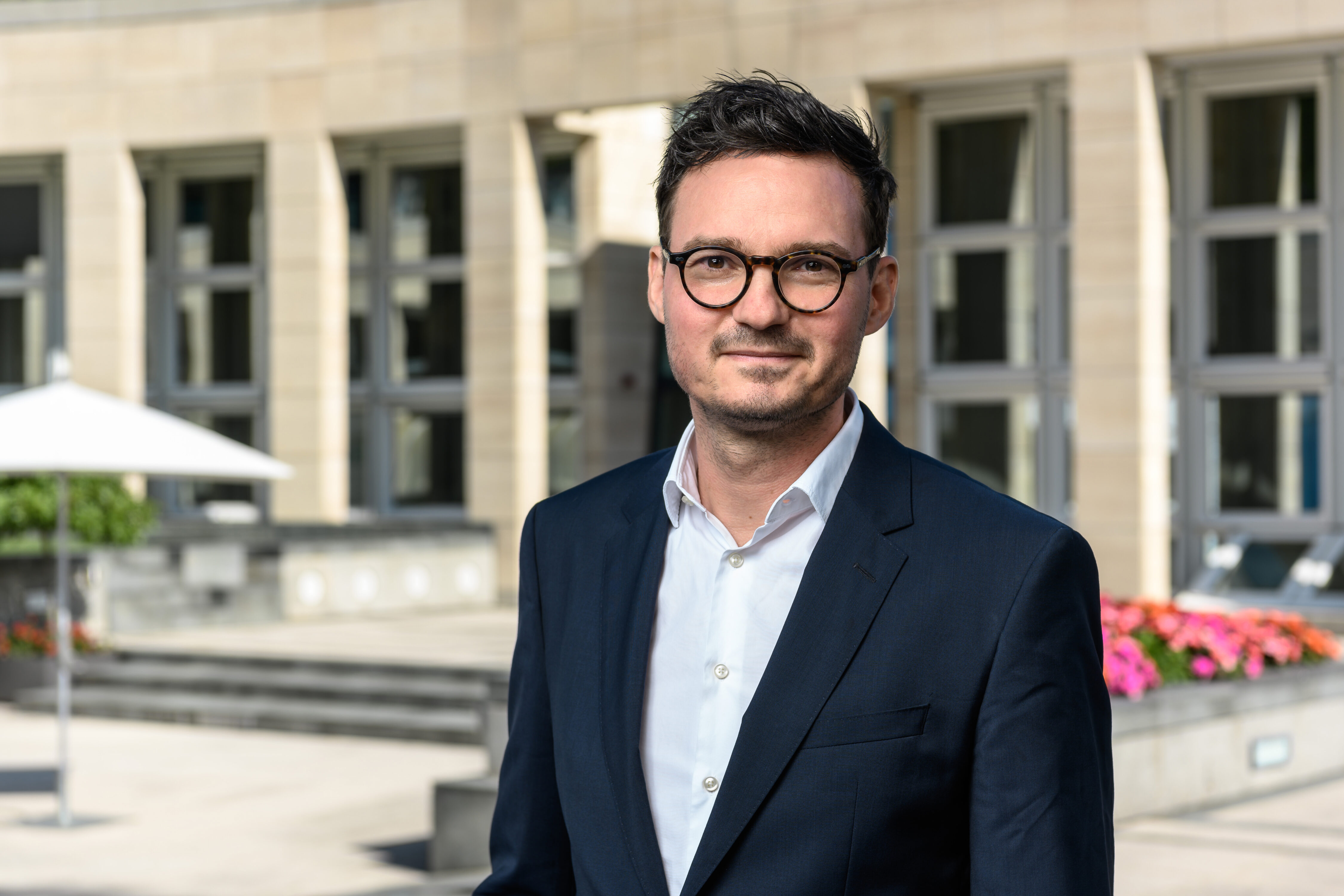
Why we should cherish women over 50
Multigenerational teams bring competitive advantages. It’s vital to tap into the wisdom and experience of older workers, urges Shelley Zalis....
Audio available

by Alexander Fleischmann Published June 27, 2025 in Diversity, Equity, and Inclusion • 9 min read
While LGBTQ+ communities have achieved significant progress in fighting for equal rights across many regions over recent decades, current sociopolitical turmoil threatens to undermine these advances. In the corporate world, where visibility has increased and inclusive policies have been implemented, companies now face pressure to step back from their DE&I commitments.
IMD and the IMD Inclusive Leadership Alumni Community hosted the online event Navigating LGBTQ+ in the corporate world in 2025: Where we come from and where we are heading? to examine the evolving landscape for LGBTQ+ professionals in the corporate environment. The conversation brought together not only four panelists – leaders who have navigated their own journeys as LGBTQ+ professionals – but also more than 35 executives from across industries and regions to discuss how the current sociopolitical climate affects LGBTQ+ professionals, explore regional variations, and examine what effective leadership and allyship look like in these challenging times.
For the panelists, the path forward remains clear despite external pressures: authentic leadership, visible support, and sustained commitment to inclusion that transcends political cycles and delivers concrete business value.
Education means not assuming people understand what being trans entails – so I share, gently but clearly. Example means showing that inclusion isn’t just a value – it’s a performance multiplier.
Changes in DE&I policy in the US have created significant challenges for multinational companies, forcing organizations to navigate conflicting expectations and regulatory frameworks across different regions. Many corporations that previously championed diversity initiatives now find themselves reassessing their public commitments while attempting to maintain internal support for inclusive practices.
Bea Knecht, founder and board member of media company Zattoo, emphasized the importance of sustained engagement despite external pressures. “The backlash is real, but it’s revealing. It shows where the culture hasn’t solidified yet and where it still must come to more clarity,” she said. Knecht advocates for continued commitment rather than retreat, approaching challenges with three tools: education, example, and embeddedness.
“Education means not assuming people understand what being trans entails – so I share, gently but clearly. Example means showing that inclusion isn’t just a value – it’s a performance multiplier. Diverse teams adapt faster, and trust builds innovation.
Embeddedness is the hardest: it’s about ensuring that inclusion is not a side project but part of how we hire, evaluate, promote, and design benefits. As a founder, I have the privilege – and the duty – to bake this in. Even in 2025, we must stay vigilant because rights are not static. We build corporate cultures resilient to political drift by anchoring them in values, not headlines.”
Asked about her experience of transitioning as a founder and senior leader, Knecht reflects: “I found that people responded well to authenticity. My thought leadership remained the same. My people leadership adapted as I handed the CEO role to my successor and stepped into my new role as chairperson of the board. My board was supportive, my team curious but respectful, and over time, what had seemed ‘different’ became simply ‘normal’.” Framing her transition as an evolution, not as an ability, allowed her to take all stakeholders along the way. “Ultimately, being visible as a trans leader turned into an unexpected asset: it fostered a culture of greater trust and courage.”

“We have allies among senior people, for example, because people aged 55+ don't always feel they have a safe space in our business where the average age is 31.”
Building sustainable LGBTQ+ networks within one’s organization is one key tool for creating inclusive cultures. Walter Hassler, CFO of dentsu Germany and DACH, co-founded one for his cluster of countries, which includes Germany, Austria, and Switzerland, but now also Serbia and the Philippines. The network, now called Proud, has expanded beyond LGBTQ+ issues to include other underrepresented groups.
“We have allies among senior people, for example, because people aged 55+ don’t always feel they have a safe space in our business where the average age is 31,” Hassler explained. This broader approach, combined with a clear focus on the business, helped sustain the network even during difficult business periods, as the value-added was clear for everyone.
Still, maintaining momentum is often challenging as contributing to an LGBTQ+ network is on top of your daily tasks. Hence, deliberate support from leadership is key. Hassler noted the importance of allocating actual time and resources: “We had to free up time in employment contracts to allow people to spend time on community work, avoiding issues with line managers. We had a dedicated chairperson, whose contract time was partially dedicated to the work for the community. For others, we anchored their time in their yearly performance goals – also to make the business value clear for everyone.”

The discussion also revealed significant regional differences in LGBTQ+ workplace inclusion. Junqi (Danny) Tan, Head of Cross Border Business at Miravia and LGBTQ+ Inclusion Lead of IMD’s Inclusive Leadership Alumni Community, highlighted particular challenges within Chinese corporate culture. “One of the biggest challenges I’ve seen is that people who belong to the community still feel reluctant to admit or share with other people, especially in a company setting, that they belong to this community,” Tan explained.
He attributed this reluctance to historic cultural conservatism and generational gaps in leadership. “Many senior leaders in Chinese companies are in their 50s or 60s, and in their time, they didn’t receive that much training or education on LGBTQ+ culture,” Tan noted.
Hassler echoed this, emphasizing the role of international networks. For his Proud network, some members in countries like the Philippines or Serbia cherished the possibility to connect with colleagues in different geographical regions. He also shared a very inspiring moment from dentsu Japan, the global holding company, which shared a video this year that highlights the contribution of LGBTQ+ employees.
Tan also identified encouraging trends, particularly among younger employees and within technology companies. “The younger employees are more open, and some of them even feel natural talking about their sexuality,” he observed, suggesting that change is happening gradually through demographic shift as Gen Z becomes the predominant generation in the workforce globally.
Luis Ornelas, co-leader of IMD’s Inclusive Leadership Community, highlighted a practical concern for senior management: ensuring equal benefits for LGBTQ+ families, even if they are not legally mandated in specific geographies. He pointed out disparities in some parental leave policies that can disadvantage same-sex couples, noting that “two men taking four days paternity leave each, so a total of eight days, is not enough to welcome a new child into your family.”
The ‘startup grind’ is brutal and you're going to need every last fiber of your body. Fighting for a startup and being aligned in your orientation or your identity is going to be hugely beneficial to this very tough endeavor.
For Corinne Avelines, former Chief Digital Officer & Chief Technology Officer now strategy consultant on tech and AI disruptive transformations, authenticity has been central to navigating her career as an LGBTQ+ professional. “I never tried to hide or not be open about this. On the contrary, I’ve always been very open in my personal and professional environment,” she said. “That basically didn’t leave any room for people to have a judgment on it.”
Corinne Avelines emphasized that being open about her identity, while important, doesn’t define her entire professional persona. “It is definitely defining me, but it’s not the only thing that’s defining me, and as such, that’s never the first thing I say or share about myself,” she explained.
Bea Knecht echoed this sentiment, describing how her transition – while leading a startup – actually strengthened her leadership capabilities. “The ‘startup grind’ is brutal and you’re going to need every last fiber of your body. Fighting for a startup and being aligned in your orientation or your identity is going to be hugely beneficial to this very tough endeavor. I presented it as an enhancement to my authenticity and as a consequence, my leadership didn’t weaken, it sharpened, and I got a lot more clarity,” she said. She attributed this to what she calls “increased gut-brain alignment,” arguing that authentic expression of identity enhances resilience – a crucial quality for business success.
The discussion emphasized that creating inclusive workplaces extends far beyond the LGBTQ+ community itself. Avelines stressed the responsibility of all leaders: “Whether you identify or not with the LGBTQ+ community, as a leader you have a really strong responsibility in that domain.”
She outlined specific actions for allies, including mindful recruitment and promotion practices, calling out inappropriate behavior – both intentional and naïve – and leading by example. “It’s extremely important to call out wrong behaviors,” she said. “Sometimes those wrong behaviors are naĩve, and it’s important as a leader to educate people who made those comments in a non-offensive manner.”

“Authentic inclusion isn't merely about policies or public statements –it's about creating environments where all employees can contribute their best work while being true to themselves.”
The panelists concluded their discussion with concrete recommendations for business leaders seeking to maintain inclusive workplaces despite external pressures. Their collective advice focused on practical steps that any leader can implement:
Diversify leadership circles and decision-making processes. Rather than waiting for diverse perspectives to emerge naturally, leaders should actively invite and value different viewpoints in strategic discussions.
Practice authentic, assumption-free leadership. Managers should avoid assumptions about employees’ experiences and remain genuinely open to understanding different journeys and perspectives.
Respond immediately to bias when it occurs. Creating inclusive cultures requires real-time intervention when inappropriate behavior surfaces, whether intentional or unconscious.
Support LGBTQ+ initiatives visibly and consistently. This includes attending Pride events, mentoring LGBTQ+ colleagues, and ensuring inclusion considerations in promotion and development decisions throughout the year.
Build bridges and encourage universal allyship. Sustainable inclusion requires broad support networks that extend beyond the LGBTQ+ community itself.
Focus on performance while supporting authenticity. Ensure LGBTQ+ employees can excel professionally without being seen as “diversity hires” by maintaining high performance standards alongside inclusive practices.
Create mentorship opportunities and safe spaces. Experienced professionals should actively mentor younger LGBTQ+ colleagues and foster environments for open discussion about identity and career development for all employees.
As the political and business landscape continues to evolve, Corinne Avelines, Walter Hassler, Bea Knecht, and Junqi Tan have each demonstrated that authentic inclusion isn’t merely about policies or public statements –it’s about creating environments where all employees can contribute their best work while being true to themselves. Their experiences suggest that companies committed to genuine inclusion, rather than performative gestures, will emerge stronger and more innovative, regardless of external pressures.

Equity, Inclusion and Diversity Research Affiliate
Alexander received his PhD in organization studies from WU Vienna University of Economics and Business researching diversity in alternative organizations. His research focuses on inclusion and how it is measured, inclusive language and images, ableism and LGBTQ+ at work as well as possibilities to organize solidarity. His work has appeared in, amongst others, Organization; Work, Employment and Society; Journal of Management and Organization and Gender in Management: An International Journal.

January 22, 2026 • by Shelley Zalis in Diversity, Equity, and Inclusion
Multigenerational teams bring competitive advantages. It’s vital to tap into the wisdom and experience of older workers, urges Shelley Zalis....
 Audio available
Audio available
January 21, 2026 • by Rupa Dash in Diversity, Equity, and Inclusion
As women live longer, society must rethink careers and leadership to unlock a longevity-equality dividend that enables women to contribute and lead at every life stage....
 Audio available
Audio available
October 24, 2025 • by Luca Condosta, Alexander Fleischmann in Diversity, Equity, and Inclusion
Companies gain performance advantages through LGBTQ+ inclusion, yet nearly nine in 10 Swiss firms lag. Here’s how leaders can close the gap....

October 21, 2025 • by Vanina Farber in Diversity, Equity, and Inclusion
When talk of diversity triggers backlash, leaders face a paradox: how to advance inclusion goals while choosing language that keeps dialogue alive in hostile environments....
Explore first person business intelligence from top minds curated for a global executive audience